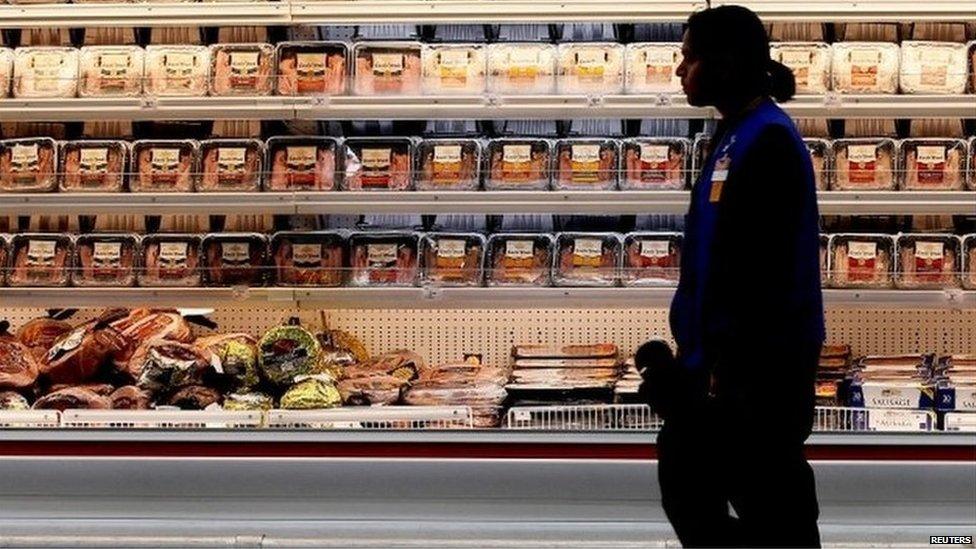Ross backs post-Brexit UK-US trade deal
- Published
- comments
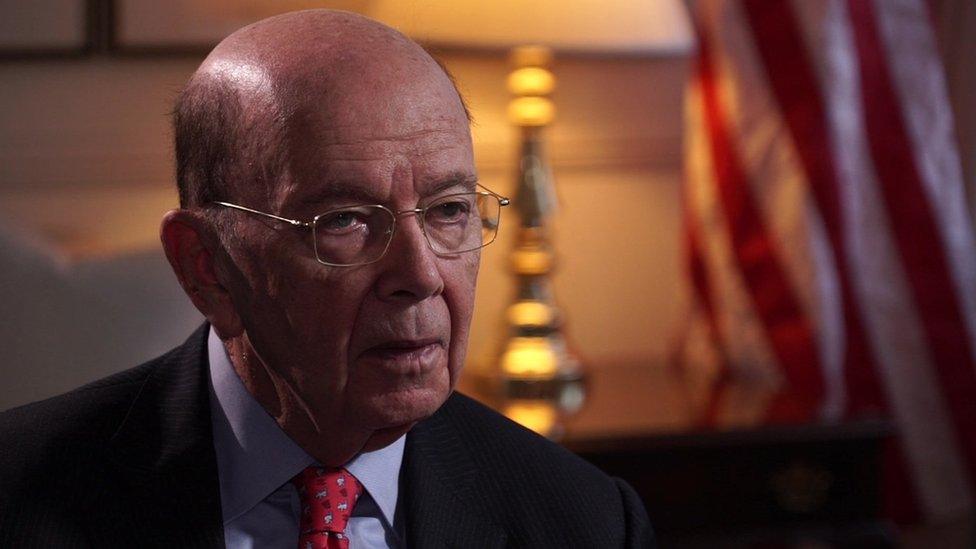
One of Donald Trump's leading allies has said he is optimistic that the UK and US will sign a free trade deal after Brexit.
US Commerce Secretary Wilbur Ross also accused the European Union of being guilty of "extreme protectionism".
He said there had already been a "joint scoping exercise" in Washington in July on a free trade agreement between America and Britain.
And that another similar meeting will be held in London next week.
During his London visit over the last few days, Mr Ross has had meetings with the International Trade Secretary, Liam Fox; the Foreign Secretary, Boris Johnson, and the Chancellor, Philip Hammond.
"There should be a free trade agreement [FTA] between us once the UK is on its own," Mr Ross told me.
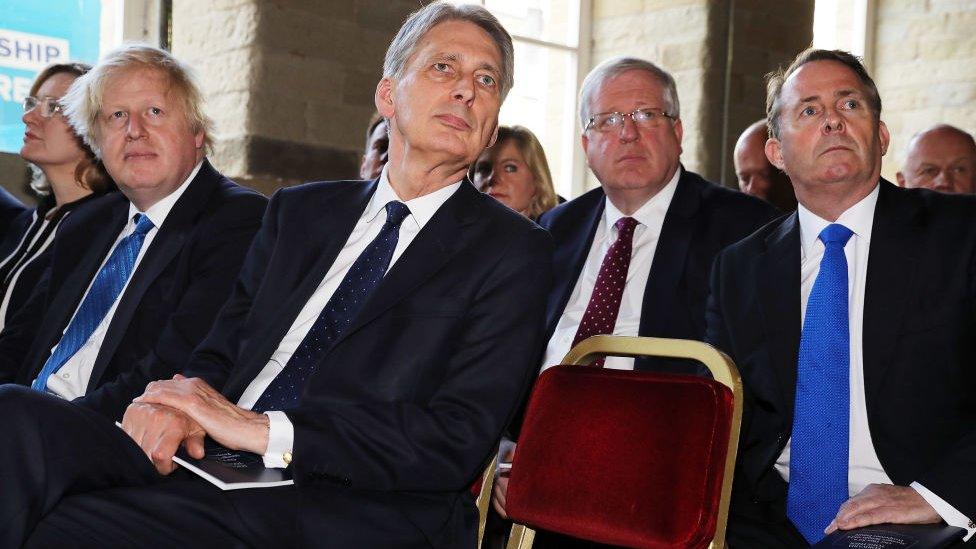
Wilbur Ross has met Boris Johnson (far left), Philip Hammond (left) and Liam Fox (far right) in recent days
"We're huge trading partners with each other and our economies are in many ways more similar to each other than either of us is to most of Europe.
"So there's all the logic in the world for the US and the UK to be not only good trading partners, but FTA partners," he said.
He said later at the CBI annual conference: "I am convinced that a historic trade deal between our countries would bolster this already strong partnership. President Trump is very supportive of such a deal and has repeatedly engaged with Prime Minister May on this important topic."
'Extreme protectionism'
However, Mr Ross told me that at present the UK "inadvertently" has higher taxes on US imports than America has on the goods it buys from Britain - because it is bound by the EU system.
"The EU talks a good job on free trade, but in fact it practises extreme protectionism," he said.
I asked him whether signing a bilateral deal with the UK was likely to be easier than signing an FTA with the rest of the EU.
"I think it definitely would be for lots and lots of reasons. I think most people in the UK regard themselves as free traders, but they are inadvertently protectionist because they're part of the EU," he said.
He also said that any negotiations would not "take a decade", and that the time frame was likely to be "much shorter".
"Toward that end - while we're being very careful to comply with EU law - we have had a joint scoping exercise," he revealed. "The first session was in Washington in July. There's another session of it here in London on the 13th to the 15th of November."
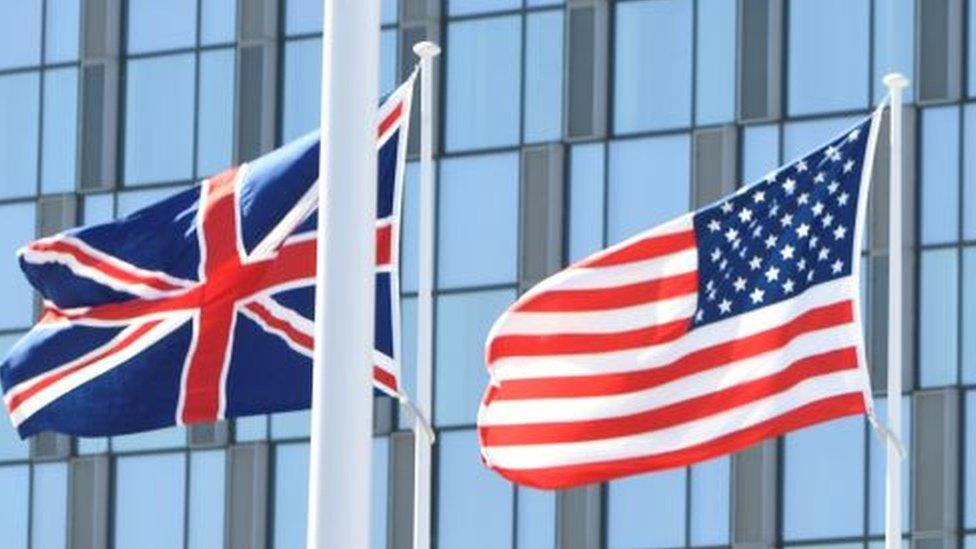
Mr Ross said the meetings were helpful because it allowed all the parties involved to get to know each other and understand what might be some potential issues.
"But we have to be very, very careful," he said, adding: "The UK is being exceedingly careful not to cross the boundary line and not to do anything that violates its agreement with the EU."
No trade war
Mr Ross said the UK would fare "fine" outside the EU - as long as there wasn't a trade war. "If the end result of Brexit is a huge trade war between the UK and the EU, that would obviously be undesirable," he said.
"It would probably be worse on the EU given where the trade balances sit. But nobody wants a trade war."
I asked him if it were better for US-UK trade relations if Britain were fully out of the single market and the customs union.
"Well, it gives the potential for a more intimate relationship with us if you're out of it," he answered.
"[That's] simply because you can do your own negotiating, you don't need Brussels to do it and in fact right now, you're required to have Brussels do it, so that's a qualitative change in the relationship, and given the fundamental rapport between the US and the UK I have to believe that could be constructive."
- Published6 November 2017
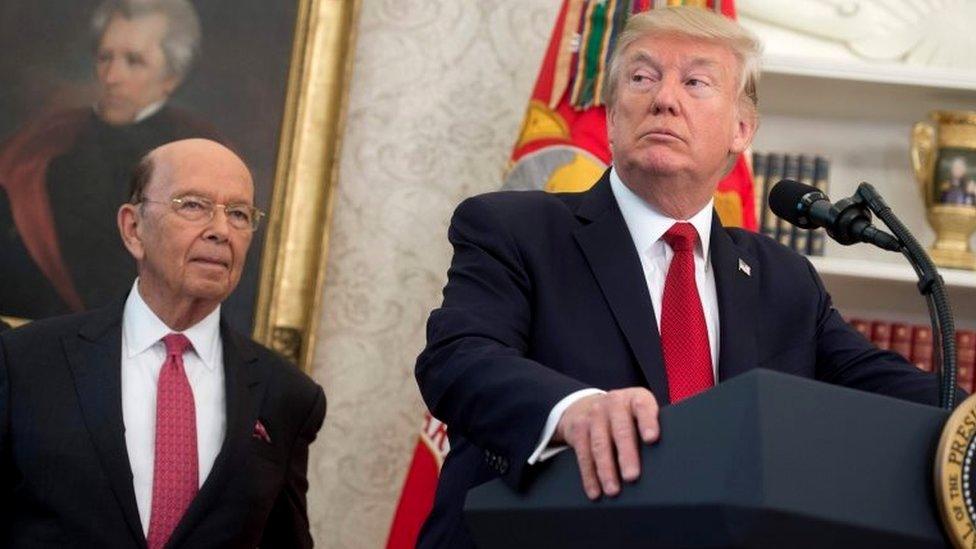
- Published25 July 2017
